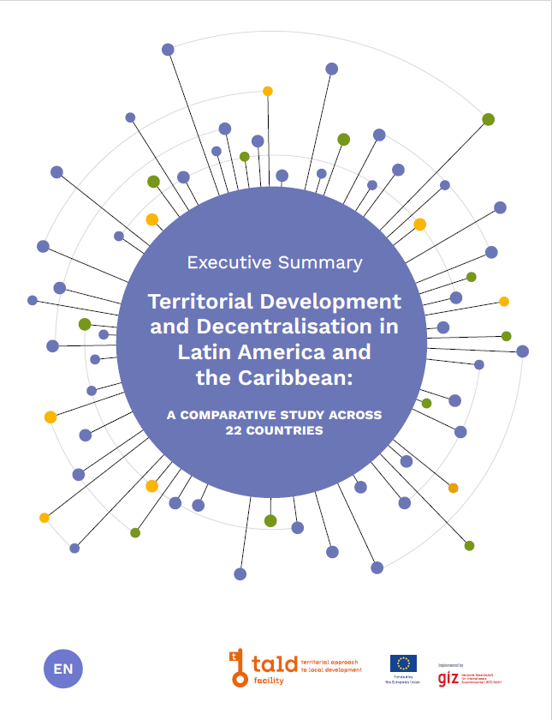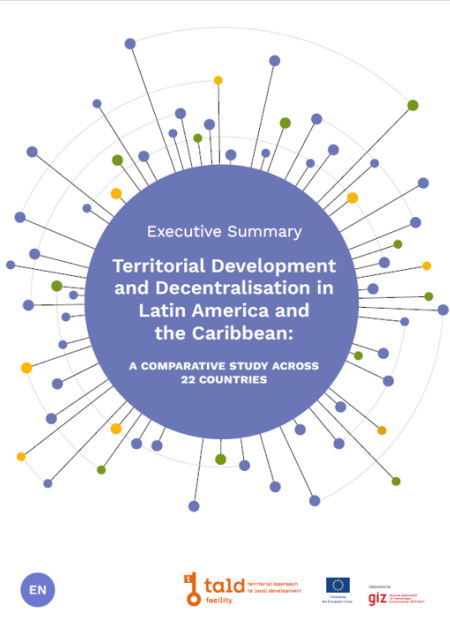Territorial Development and Decentralisation in Latin America and the Caribbean – a comparative study across 22 countries
This study is a contribution to understand and assess the current state of decentralization and territorial development in Latin America and the Caribbean (LAC), as well as the legal and institutional framework in which subnational governments operate in the region. The study presents a comparative analysis of ten factors considered central to explain decentralization processes and the quality of the legal and institutional environment in which subnational governments operate in twenty-two countries of the region.
The twenty-two countries analyzed are: Argentina, Belize, Bolivia, Brazil, Chile, Colombia, Costa Rica, Cuba, Dominican Republic, Ecuador, El Salvador, Guatemala, Haiti, Honduras, Jamaica, Mexico, Nicaragua, Panama, Paraguay, Peru, Uruguay, and Venezuela. The analysis reveals that the urban reality of Latin America and the Caribbean, with 82% of the population living in cities, along with the complexity of the multiple challenges it faces, points to the need to strengthen the capacities of subnational governments and bring the exercise of political power closer to citizens and the territories they inhabit, deepening the processes of decentralization and territorial development.
This publication was produced by the Territorial Approach Mechanism for Local Development (TALD), funded by the European Union and implemented by GIZ International Services, with financial support from the European Commission, the Barcelona Provincial Council, the Observatory of Decentralized Cooperation, and contributions from Mercociudades, FLACMA, APC Colombia, and UN-Habitat.
This publication is also available in:



